
Shutterstock
By Annabel Bligh, The Conversation; Gemma Ware, The Conversation, and Holly Squire, The Conversation.
Includes interview with BU’s Professor Keith Brown discussing confidence artists in financial scamming. [31:50 – 36:38]
This episode of The Anthill podcast digs into the concept of confidence. We start by finding out how scientists define confidence and how it works in the brain.
Producer Gemma Ware takes a confidence calibration test with the help of psychologist Eva Krockow at the University of Leicester, who also shares some of her research findings on whether expressing confidence about something is a good marker of being right about it. And neuroscientist Dan Bang from the Wellcome Trust Centre for Neuroimaging, UCL, helps explain how a person’s brain computes their level of confidence about certain tasks – and why we need to be aware of the variety in people’s levels of confidence when making decisions as a group.
Then we take a look at how confidence can get us ahead in life – and in the workplace especially. Can you really fake it until you make it? Westminster University’s Chantal Gautier shares some of the findings from her book, The Psychology of Work, where she interviewed a number of industry leaders to discover what it is that makes organisations successful. Confidence is important. But that includes the confidence to admit your shortcomings and ask for help when you need it, she says.
With numerous studies suggesting that men show more confidence than women, we also examine the extent that this explains the gender pay gap. Are women just not leaning in enough?

Lean on in. Shutterstock
Recent research by Amanda Goodall at Cass Business School found that women are actually asking for pay rises at the same rate as men. They’re just not getting them. She helps us unpick the idea that you can fake it ‘til you make it and explains why leaders that are real experts in their field are better than those who aren’t.
Lastly, we turn to the dark side of confidence. The Conversation’s Holly Squire delves deep into the murky world of confidence tricksters, to find out what makes a con man (or woman) tick. Professional magician Gustav Kuhn at Goldsmiths University of London, details the deception involved in card trick scams. And Keith Brown from Bournemouth University explains the reality of financial scamming – and the terrible impact it can have on victims.
The Anthill theme music is by Alex Grey for Melody Loops. The song “I Have Confidence” is sung by Julie Andrews from the musical The Sound of Music by Rogers and Hammerstein. Music in the confidence definition segment is Into the Clouds by Nicolai Heidlas Music via YouTube.
Music in the confidence trickster segment is Curtains are Always Drawn by Kai Engel, and Land of Magic by Frank Dorittke from the Free Music Archive.
Click here to listen to more episodes of The Anthill, on themes including Twins, Intuition, and Pain. And browse other podcasts from The Conversation here.
Thank you to City, University of London’s Department of Journalism for letting us use their studios to record The Anthill.
Annabel Bligh, Business + Economy Editor, The Conversation; Gemma Ware, Society Editor, The Conversation, and Holly Squire, Commissioning Editor, The Conversation
This article was originally published on The Conversation. Read the original article.

 Digital Tethering: Understanding Digital Immersion within Streaming and E-Sports
Digital Tethering: Understanding Digital Immersion within Streaming and E-Sports



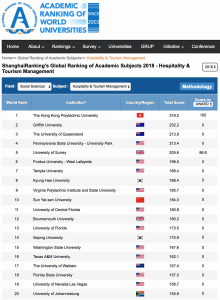
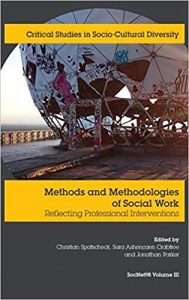






 Hai Luu (PhD student working with Prof Genoveva Esteban and Dr Iain Green in the Department of Life and Environmental Sciences, SciTech) travelled to her home country of Vietnam where she organised a seminar on microscopic life for 20 undergraduate students of the Aqua-Agriculture Faculty at Travinh University. Students collected samples from freshwater ponds, and observed the single-celled and other microscopic organisms that thrive in such habitats; they also studied their diversity in soil samples. Hai Luu gave a presentation about the diversity of organisms that constitute the unicellular protists, including micro-algae, protozoa, and slime molds. This event was a great opportunity for the students to recognise the biodiversity of micro-organisms in soils and fresh waters, and to understand the important role they play in food webs. The seminar was the first of its kind at Travinh University, and a unique opportunity to disseminate the research we do in this field at BU to a wider audience. Excellent feedback was received from the enthusiastic group of students.
Hai Luu (PhD student working with Prof Genoveva Esteban and Dr Iain Green in the Department of Life and Environmental Sciences, SciTech) travelled to her home country of Vietnam where she organised a seminar on microscopic life for 20 undergraduate students of the Aqua-Agriculture Faculty at Travinh University. Students collected samples from freshwater ponds, and observed the single-celled and other microscopic organisms that thrive in such habitats; they also studied their diversity in soil samples. Hai Luu gave a presentation about the diversity of organisms that constitute the unicellular protists, including micro-algae, protozoa, and slime molds. This event was a great opportunity for the students to recognise the biodiversity of micro-organisms in soils and fresh waters, and to understand the important role they play in food webs. The seminar was the first of its kind at Travinh University, and a unique opportunity to disseminate the research we do in this field at BU to a wider audience. Excellent feedback was received from the enthusiastic group of students.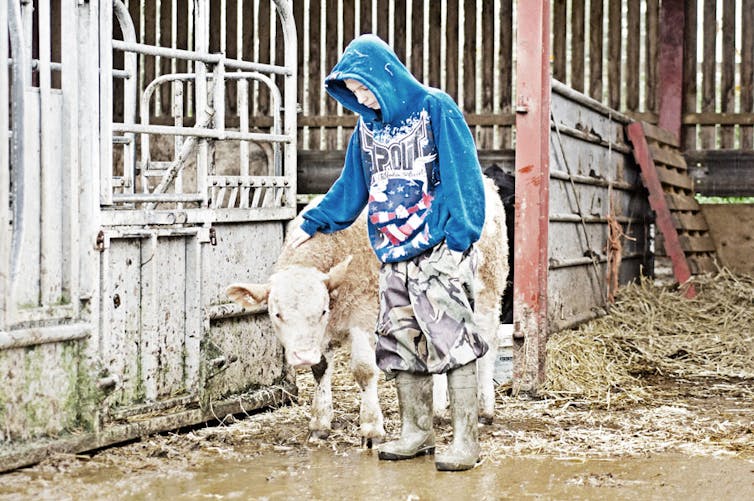
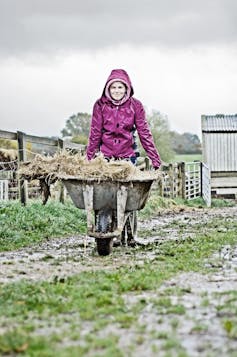
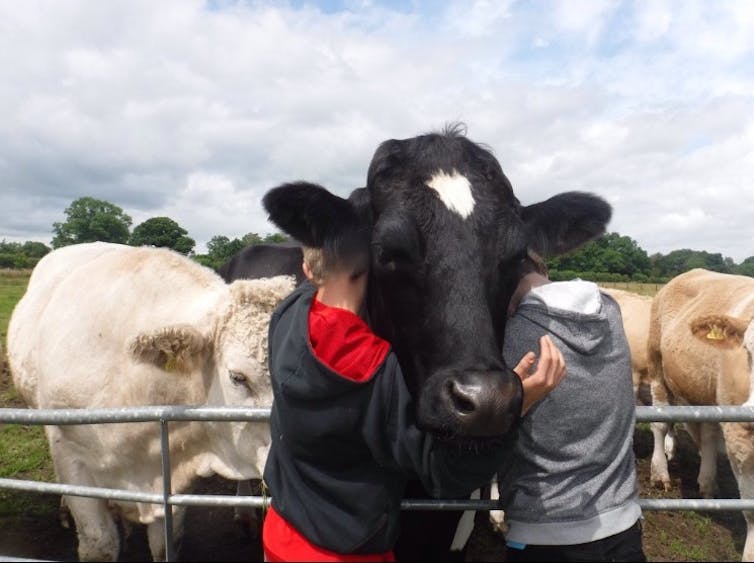

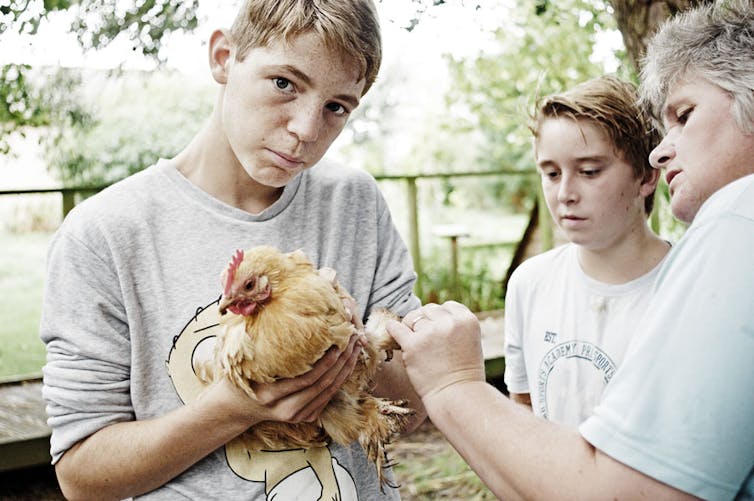

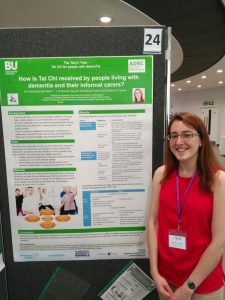
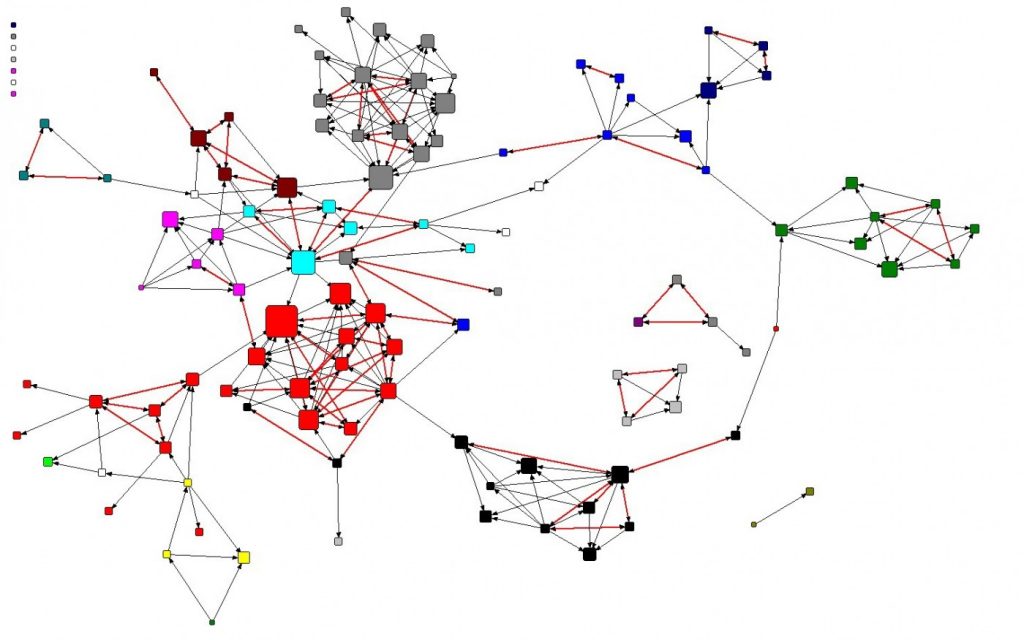 The chart shows the organisation with the squares representing individuals in different subject areas.
The chart shows the organisation with the squares representing individuals in different subject areas.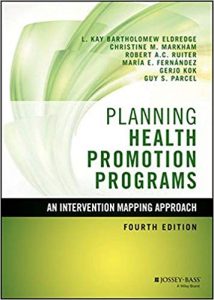
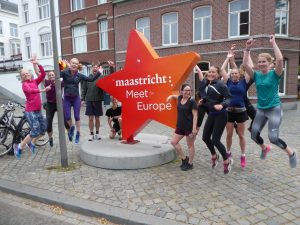











 Connecting Research with Practice: FoodMAPP Secondment in Austria and France
Connecting Research with Practice: FoodMAPP Secondment in Austria and France Health promotion paper read 8,000 times
Health promotion paper read 8,000 times The Beautiful Work Challenge: On Birth
The Beautiful Work Challenge: On Birth Free event on Solutions to Inequalities in Dementia Diagnosis and Care
Free event on Solutions to Inequalities in Dementia Diagnosis and Care MSCA Postdoctoral Fellowships 2025 Call
MSCA Postdoctoral Fellowships 2025 Call ERC Advanced Grant 2025 Webinar
ERC Advanced Grant 2025 Webinar Horizon Europe Work Programme 2025 Published
Horizon Europe Work Programme 2025 Published Horizon Europe 2025 Work Programme pre-Published
Horizon Europe 2025 Work Programme pre-Published Update on UKRO services
Update on UKRO services European research project exploring use of ‘virtual twins’ to better manage metabolic associated fatty liver disease
European research project exploring use of ‘virtual twins’ to better manage metabolic associated fatty liver disease